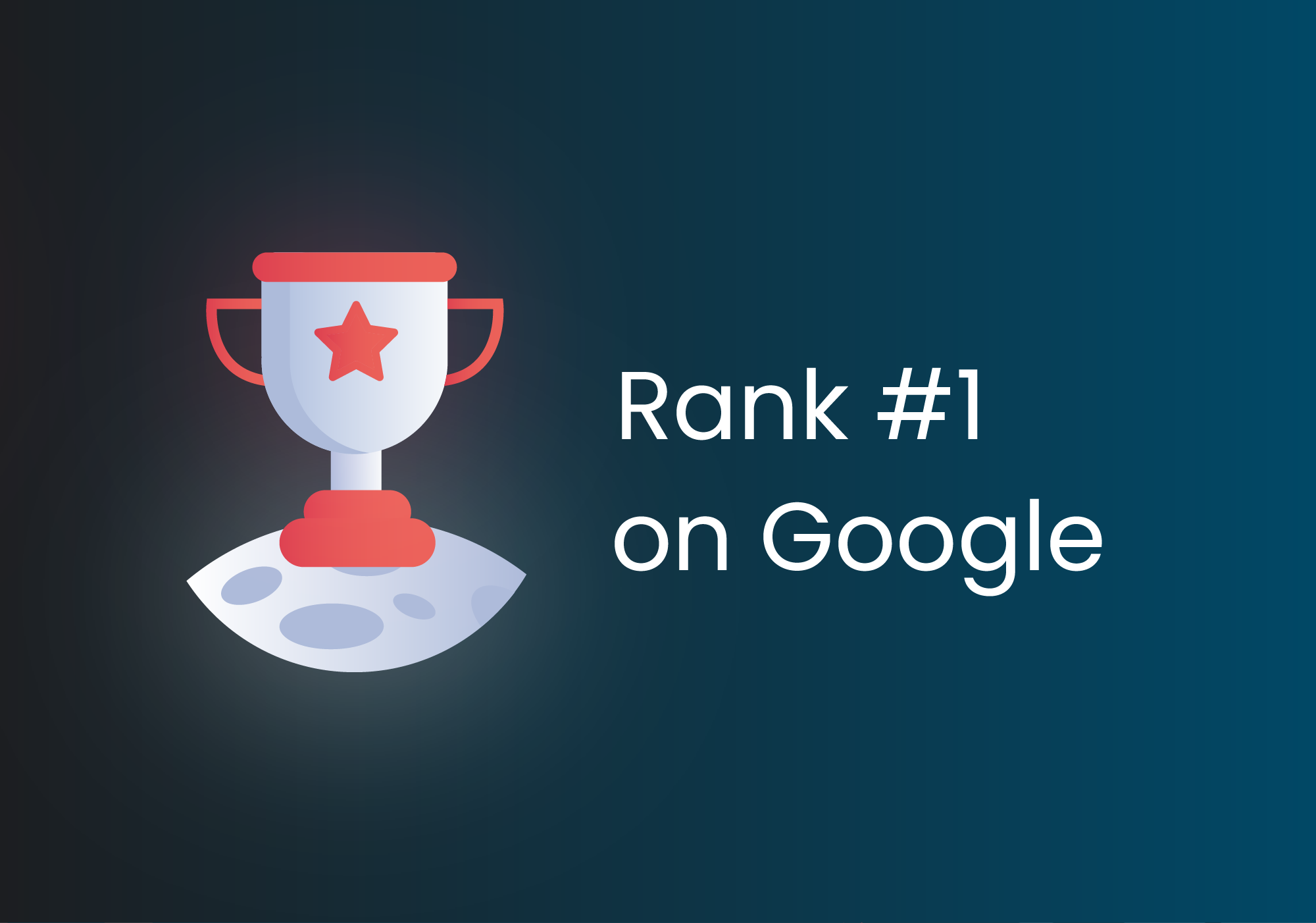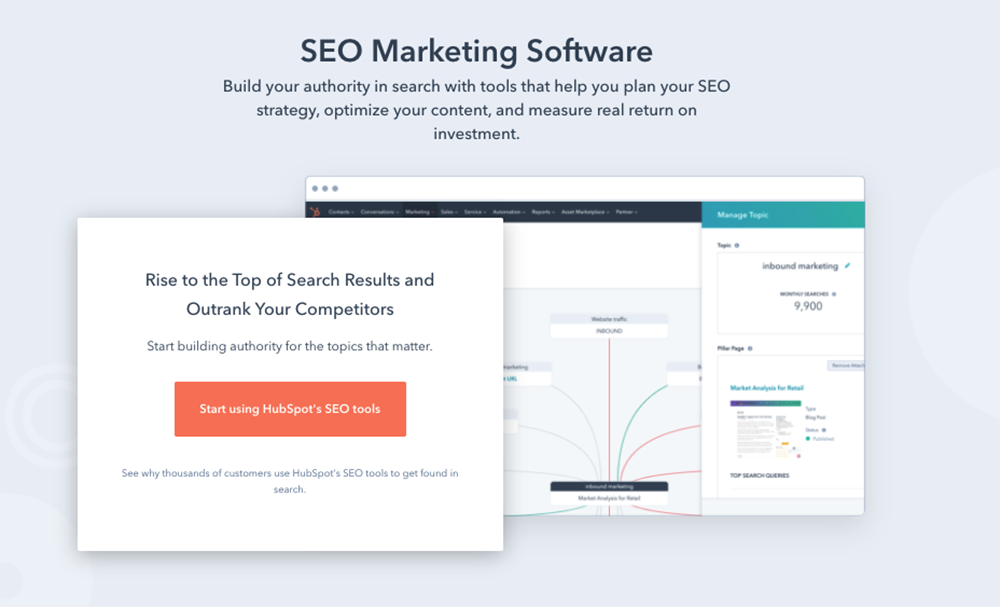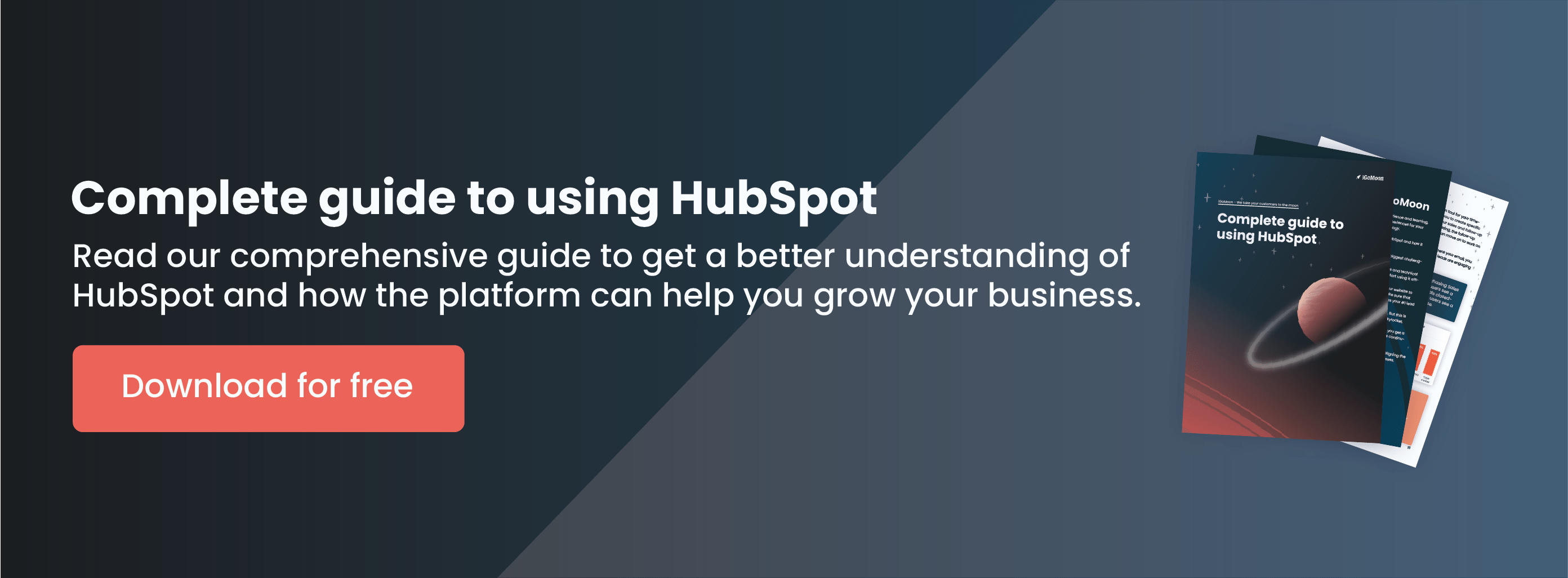Migrating to a new CMS can be quite challenging. From publishing content to making sure your pages are well optimized, there’s a long list of things you need to do in order to have a successful website migration. Let’s look at how you can boost your website’s SEO with HubSpot’s Content Hub.

*This post was originally written by Tayla Fagan and published on 21 January 2021
What is SEO?
If you already have a solid understanding of search engine optimization (SEO) and why it’s important skip to the next section, but here’s your ten-second SEO lesson for the people in the back.
SEO is the practice of increasing the quantity and quality of traffic to your website and gaining exposure to your brand through non-paid (also referred to as organic) search engine results.
Why SEO is important
SEO is the key to attracting people to your website and subsequently growing your business. While paid advertising, social media, and other online platforms can generate traffic to your website, most online traffic is driven by search engines like Google.
Organic search results cover more digital ground, appear more credible to your searchers, and get way more clicks than paid advertisements (PPC).
SEO is also one of the few online marketing channels you can continue to benefit from overtime. If you provide a stellar piece of content that deserves to rank for the right keywords, your traffic should grow exponentially. Paid advertising channels require constant funds to send traffic to your site.
Optimizing your site will help you deliver better information to search engines so that your content can be properly indexed and displayed within search results. Ensuring that your desired audience finds you.
Creating an effective SEO strategy
We all know that search engine marketing is complex and requires never-ending efforts to:
- Keep up with the pace of always-changing search engine algorithms.
- Rank higher than your competitors.

Ranking on the first page of Google is challenging, yes...but it’s not impossible. You just need to know the algorithms you’re up against and factor in a full SEO strategy for your website. Websites that rank higher on Google consider:
- Their user’s intent
- Responsiveness and mobile-friendliness
- Technical SEO
- Content marketing and on-page SEO
- User experience
So, where do you start if you want to improve these elements on your own business website in order to rank higher than your competitors?
Read more about how you can grow your business with HubSpot's Content Hub here.
Choose the right CMS
When developing a new website or redesigning your existing one, the choice of CMS might make or break your website. Not only does the CMS you choose affect the efficiency of the development process and how your site will rank in the search engines from a technical perspective, but it can influence your marketing efforts too.
The transition between development and marketing must be seamless for your SEO efforts to be manageable. Your work also needs to be well thought out if you want to rank at the top of search engine results pages (SERPs) like Google.
Let’s look at how Hubspot Content Hub compares to other CMS systems in terms of SEO.

Technical SEO and HubSpot Content Hub
How you design and build your website is a major factor for SEO and for achieving a high ranking on SERPs.
What is technical SEO?
Technical SEO refers to the various ways you optimize your site and make it easier for search engines to crawl and index. Technical SEO can also include technical processes like meta-tags, Javascript and CSS indexing, sitemaps, speed, and links or redirects.
Several tools for optimizing your site’s performance from a technical SEO perspective are available directly on the HubSpot platform. This makes it easy for marketers and various team members who may have little technical expertise, to ensure your site is able to achieve a higher ranking on Google. With HubSpot Content Hub you cut out the need for help from a developer.
Helpful on-page SEO tools for marketers and developers
Hubspot’s CMS Hub makes collaboration between developers and marketers easy. Developers can build powerful, secure, and flexible websites and content structures using their preferred tools and technologies. No more will marketers need to rely on the development team in order to make changes on the website to boost SEO or enhance the user's experience.
With the marketing side of SEO, several built-in SEO tools make Hubspot’s Content Hub a reliable partner for everyone on your team. HubSpot Content Hub makes it easier for marketers to create, publish, and promote content and change website pages without needing help from a developer or learning to code.
Your marketing team can create and write all the content in the world, but it won’t benefit your company if you're not optimizing it for SEO. To help you make sure that all your content is optimized for search, Hubspot offers on-page SEO tools. Along with making content creation easier, these on-page SEO tools ensure your site is performing quickly and optimally to help your pages rank highly in search.
If you'd like to arrange a HubSpot demo contact us.
SEO recommendations
Get a complete list of SEO recommendations for your entire website. The SEO recommendations tool can analyze all the content you host on HubSpot and recommend ways for you to improve it. These recommendations could be anything from meta titles and descriptions to tags and URLs.
SEO optimize panel
Whenever you create a piece of content on HubSpot, whether it’s a landing page, website page, or blog, you’ll be given suggestions on how to optimize it before publishing. You can also access these suggestions in real-time while you’re busy editing the content.

Content strategy tool
We think one of the best tools in the SEO toolkit is the content strategy and planning tool which makes it simple to plan and execute your pillar page and topic cluster strategy. Using this tool from HubSpot's Marketing Hub, you can identify the primary keyword that you want to focus on, and use the tool to plan your SEO-optimized content around it.
HubSpot Content Hub and Google Search Console integration
Through HubSpot's integration between HubSpot and Google Search Console, you’re also able to bring data from Google into your SEO tools to add even more rocket fuel to your website’s performance. The powerful and holistic SEO functionalities offered in HubSpot make it possible for you as a marketer to build a content strategy, optimize your website, make data-driven decisions and execute marketing activities to increase your ranking in the search engines directly on the platform.
Related post: Why Marketers love HubSpot's Content Hub
SEO is ever-changing and it can be difficult to understand which keywords to prioritize to drive traffic and conversions. Hubspot's CMS Hub is the top choice for businesses that want to optimize their website from launch. Build a high-performing website that is loved by search engines.
Want to learn more about how the HubSpot Content Hub and the platform can help your business? Download our free "Complete guide to using HubSpot".
